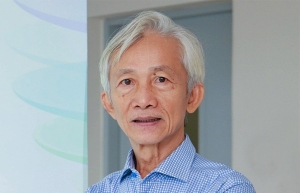INTERNATIONAL INVESTMENT
AND PORTAL
With the adoption of Resolution 68, Vietnam is sending a powerful and clear signal to the international business community: foreign direct investment is not only welcome but is now a central pillar in our long-term development strategy. This marks a significant milestone in our journey towards economic growth and prosperity.
 Manh-Hung Tran, managing director, BMVN
Manh-Hung Tran, managing director, BMVN
This resolution outlines Vietnam’s ambitious vision to build a modern, competitive, and innovation-driven economy. It emphasises the vital role private enterprises, including foreign-invested ones, will play in driving sustainable growth. For global investors and foreign-invested enterprises, Resolution 68 introduces a suite of concrete reforms that mark a decisive turning point.
One of the most compelling highlights of Resolution 68 is its strong commitment to reinforcing intellectual property rights. This has been a long-standing concern for many foreign firms operating in Vietnam, and the government has pledged to strictly protect ownership rights, particularly focusing on industrial property, trademarks, patents, and technological innovations.
This move is especially significant for high-tech enterprises and multinational corporations that are looking to establish research and development centres or transfer cutting-edge technologies to Vietnam. By ensuring fair competition and encouraging innovation, Resolution 68 aims to create a more favourable environment for these companies to thrive and contribute to our economy.
Moreover, the resolution emphasises the importance of technology cooperation between domestic and foreign enterprises. The goal is to foster a value-sharing ecosystem that safeguards proprietary technologies while encouraging collaboration and mutual growth. This approach will undoubtedly benefit all parties involved and help drive our technological advancements forward.
According to Resolution 68, some promising developments in Vietnam’s regulatory and tax environment will have a positive impact on how Vietnam will woo global talents in high-tech sphere.
Vietnam is making significant strides by aligning its regulatory and tax frameworks with international standards. One of the most notable changes is the planned reduction in personal income tax for foreign employees and experts working in Vietnam if meeting certain conditions. This move is set to make the country even more appealing to global talent, providing a major incentive for professionals considering opportunities in Vietnam.
Additionally, there is a shift from pre-licensing procedures to post-audit mechanisms. This reform is a game-changer, as it reduces administrative burdens for businesses by eliminating unnecessary hurdles. Foreign-invested enterprises (FIEs), particularly those establishing new entities, will benefit immensely from no longer needing to register business lines before commencing operations. This means businesses can start their activities without any delays, fostering a more dynamic and responsive business environment.
These reforms signal Vietnam’s dedication to balancing business-friendly initiatives with strategic oversight, thereby reinforcing its appeal to global investors and tech pioneers.
In a move to support the production and expansion plans of FIEs, the resolution also commits to improving access to land, infrastructure, and industrial zones. The Vietnamese government plans to establish more specialised, modern industrial and economic zones with favourable lease terms, logistical support, and environmental standards aligned with environmental, social, governance criteria.
Additionally, land allocation procedures will be simplified, with priority access granted to projects involving high technology, sustainable development, and innovation.
Resolution 68 also places a strong emphasis on deepening cooperation between FIEs, state-owned enterprises, and local private businesses. The goal is to strengthen the integration of Vietnam’s business ecosystem, boost knowledge sharing, and enable domestic firms to climb up the global value chain. This aligns with the Investment Law, which states equal treatment for foreign investors and encourages collaboration between economic sectors, creating a win-win framework for all stakeholders involved.
In the context of shifting global supply chains, increasing geopolitical uncertainties, and rising demand for sustainable investment destinations, Vietnam’s policy shift could not be more timely. With the new resolution, the country reinforces its position as one of the most dynamic, investor-friendly economies in Southeast Asia.
With strong political will and a clear roadmap for reform, Vietnam is transforming its investment climate. For FIEs, the new policies are not only favourable in the short term, but also represent a commitment to long-term partnership and shared prosperity.
As Resolution 68 sets the foundation for the next decade, global investors can expect greater legal clarity, operational flexibility, and strategic support to grow alongside Vietnam’s fast-evolving economy.
 Strategic pillar now in its rightful place
Strategic pillar now in its rightful place
For many years, the private sector has been considered an important motivation. Now that Resolution No.68-NQ/TW is initiated, the private sector is no longer a supporting force that is subject to institutional barriers. It is now seen as a circuit – bringing the energy of reform, technology, and innovation into real economic life.
 Pivotal turning point arrives for nation’s private sector
Pivotal turning point arrives for nation’s private sector
Despite its significance, the private sector in Vietnam continues to face challenges. Most businesses are small or medium-sized, with limited capacity for technological innovation, modest productivity, and weak integration with state-owned enterprises and foreign firms. These limitations have hindered its ability to become a truly transformative economic force.



















